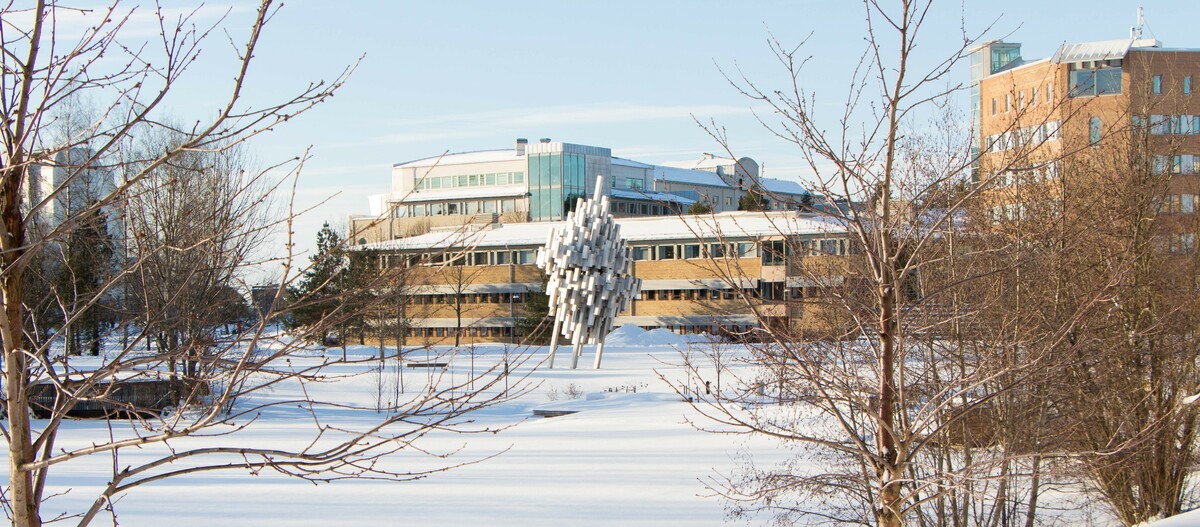Project Assistant - Hiring in process/Finished, not possible to apply
This advert is not available!
Umeå University, Faculty of Medicine
Umeå University is one of Sweden’s largest higher education institutions with over 41,500 students and about 4,600 employees. The University offers a diversity of high-quality education and world-leading research in several fields. Notably, the groundbreaking discovery of the CRISPR-Cas9 gene-editing tool, which was awarded the Nobel Prize in Chemistry, was made here. At Umeå University, everything is close. Our cohesive campuses make it easy to meet, work together and exchange knowledge, which promotes a dynamic and open culture.
The ongoing societal transformation and large green investments in northern Sweden create enormous opportunities and complex challenges. For Umeå University, conducting research about – and in the middle of – a society in transition is key. We also take pride in delivering education to enable regions to expand quickly and sustainably. In fact, the future is made here.
Are you interested in learning more? Read about Umeå university as a workplace
The Faculty of Medicine, which consists of 12 departments, is responsible for biomedical research and courses in the field of nursing and health care and has an extensive research and graduate education in more than 80 subjects.
About the project
We offer a position as a Project Assistant for 12 months to study replication of staphylococcal bacteriophages using a multidisciplinary approach: genetics, biochemistry and structural biology, such as electron cryomicroscopy (cryoEM) and X-ray crystallography. The research will take place in a well-funded (Wallenberg Foundation) research group. The Umeå Core Facility Electron Microscopy is well equipped with several state-of-the-art microscopes.
Mobile Genetic Elements (MGEs) are intrinsically related to pathogenesis, antibiotic resistance and one of the main factors in bacterial evolution. Thus understanding how MGEs express their genes and replicate their DNA is critical for our success combating bacterial infections. We study three important MGEs in Staphylococcus aureus: i) Staphylococcal Cassette Chromosome (SCC elements), responsible for Methicillin Resistance S. aureus or MRSA; ii) staphylococcal bacteriophages and iii) Staphylococcus aureus Pathogenicity Islands (SaPIs), both phages and SaPIs have fundamental roles in bacterial plasticity and pathogenesis.
Competence requirements
To be eligible for the position you need to have a Bachelor in biology, chemistry, physics, biochemistry, or related discipline. The applicant should be able to prove that she/he has laboratory experience at the postgraduate level, specifically, we are seeking applicants with experience in expression and purification of recombinant proteins, hands-on experience in cryoEM data screening and collection, as well as SPA cryoEM data processing.
We expect the candidates to be able to work independently and as part of a team. Good oral and written communication skills in English are required. Candidates with bench work experience with radiolabeled probes involving DNA polymerization reactions are encouraged to apply.
The application
Please apply through the University's e-recruitment system.
The application must be received by December 22nd 2022 and is to include:
A cover letter detailing the motivations for applying
- CV/resume including a complete list of publications
- The contact information of 2 references
- Copy of the bachelor’s degree certificate or University’s official transcript of the postgraduate courses performed by the applicant
For further information, please contact Ignacio Mir-Sanchis (Ignacio.mir-sanchis@umu.se)
We look forward to receiving your application
| Type of employment | Special fixed-term employment |
|---|---|
| Contract type | Full time |
| First day of employment | Enligt överenskommelse |
| Salary | Månadslön |
| Number of positions | 1 |
| Full-time equivalent | 100% |
| City | Umeå |
| County | Västerbottens län |
| Country | Sweden |
| Reference number | AN 2.2.1-1868-22 |
| Contact |
|
| Union representative |
|
| Published | 01.Dec.2022 |
| Last application date | 22.Dec.2022 |

